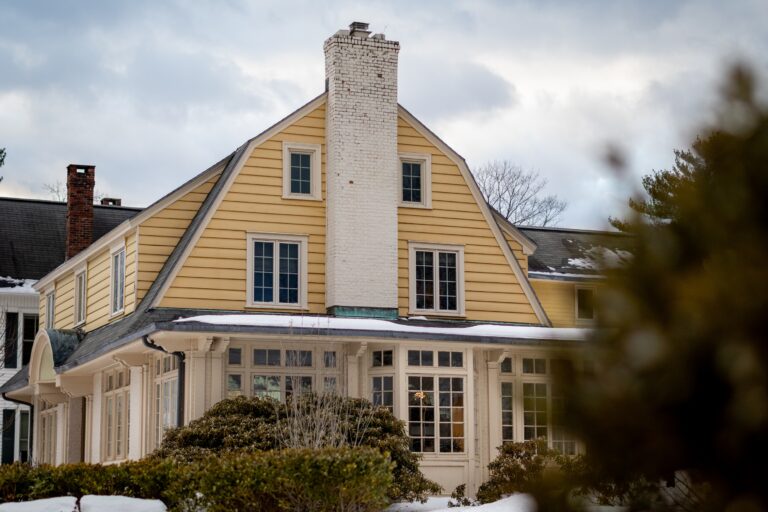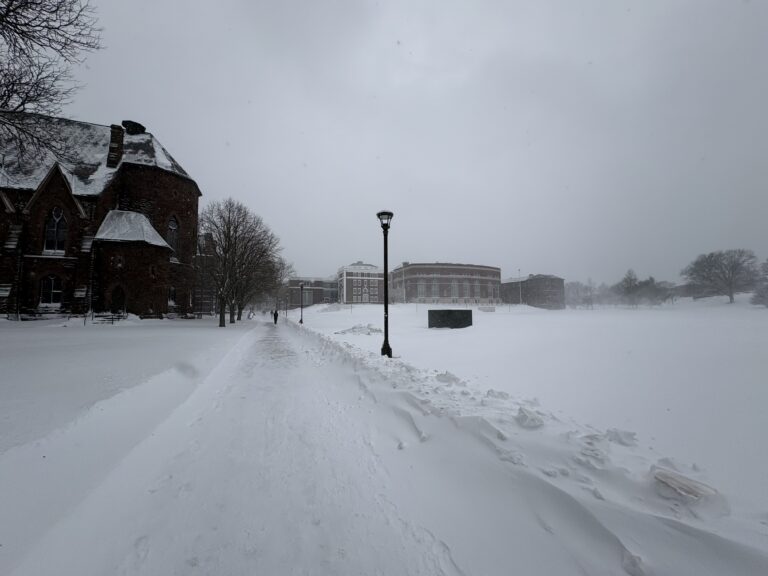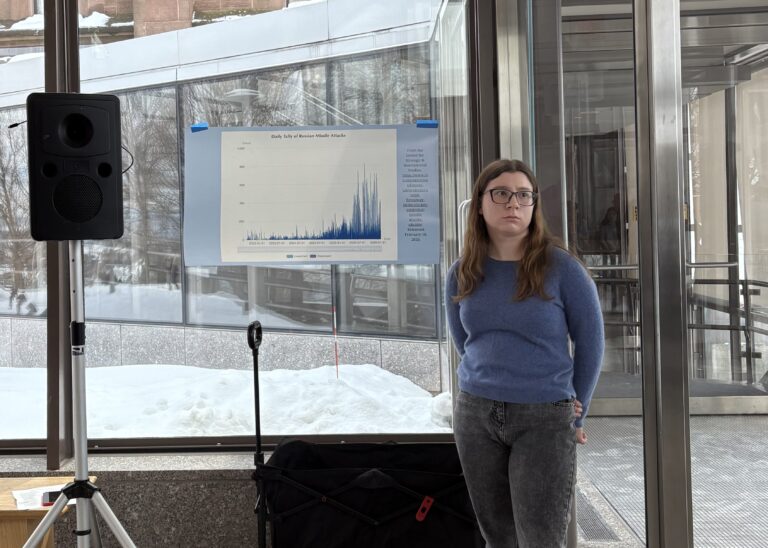Successful Summer for Kibera Clinic
[nggallery id=1]
On July 19, Jessica Posner ’09, the Managing Director of Shining Hope for Communities (SHOFCO), stood onstage in a blue sequined dress at The Do Something Awards live on VH1 in Hollywood. The next day, back in a pair of jeans, Posner boarded a flight to Kenya with a check for $100,000.
“It was totally surreal,” Posner said of winning the award. “It was like an alternate reality. It was a huge honor…Do Something believes and invests in young people. To have Jane Lynch say my name was also very cool.”
A continent away, in Kenya, Kennedy Odede ’12, the Executive Director of SHOFCO, received the good news from Posner’s father over the phone.
“I was screaming,” Odede recalls. “Do Something gave us a credibility and a lot of media attention.”
After winning $10,000 from 100 Projects for Peace in 2009, Odede and Posner founded the non-profit Shining Hope for Communities with the goal of combating poverty and gender inequality in Kibera, Kenya, which is located close to the capital of Nairobi. Kibera, with a population of 1.5 million people, is the largest slum in Africa and second largest in the world. In Kibera, one in five children does not live to see a fifth birthday.
Over the last six months, SHOFCO has won almost $300,000 in grants and awards. In addition to the $100,000 Do Something Award, SHOFCO was awarded a grant of $53,000 in March from The Newman’s Own Foundation. Odede won $3,000 from the Clinton Global University. In May, Odede and Ari Tolman ’10 flew to Texas to present at the Dell Social Innovation Competition and won $51,000. In June, Odede and Posner were named Echoing Green Fellows – a fellowship that awards $90,000 over two years and offers support, technical assistance, and a network of social entrepreneurs.
“People always ask me, ‘How did you plan all of this?’ It wasn’t planned,” Posner said. “Looking back a year ago I had no idea we would be at this point today…It has been a pretty amazing year overall.”
When Odede and Posner first embarked on their project, Posner, who has spent the past three years on and off in Kenya, remembers worrying about how many pencils they could purchase for their students. Over the summer, these small concerns faded as construction on the Shining Hope Community Center was completed.
The Center, which aims to link its services with female education, opened in late August and houses The Marcus Garvey Library and Knowledge Center and a computer lab. It will also have space for the SHOFCO Women’s Empowerment Project as well as other youth initiatives. The women at the Empowerment Project make jewelry and bags for a livelihood, and their wares will be available to purchase at Wesleyan later in the year.
Over the summer, the dust finally settled in Kibera with the completion of construction on the bio-latrine facility. Construction on the Johanna Justin-Jinich Community Clinic will be completed in the coming weeks and The Kibera School for Girls has also continued to grow with more students enrolled.
“The projects all need each other,” Odede said. “I felt like it was empty to just have a school. The kids need food. Our kids get sick. These girls are now telling their moms, ‘hey mom, boil the water.’ I call it the trinity: health, education and sanitation. They all go together.”
Sociology Professor Robert Rosenthal was Odede’s freshman advisor and currently serves as the President of the Shining Hope for Communities Board of Directors. Rosenthal communicates with workers in Kibera through e-mail, telephone and Skype, and has witnessed the hard work and rapid growth of Shining Hope.
“There was no school and [now] there is a school,” Rosenthal said. “There was no clinic and there is close to a clinic. They had this audacious vision that they have actually made real. The fundraising is not the cause, it’s the result. They had already completed the school when they were competing [for grants this past year]…I think it’s phenomenal that they were able to create something in such a short time that is so badly needed.”
Posner has read and heard criticism of her work, saying that problems of poverty should be addressed in the United States first before working overseas.
“I think that is an ignorant perspective,” Posner said. “I know we have problems in the U.S. The worst poverty in the U.S. [compared] to the worst poverty here – there is really no comparison.”
In late August, with support from the Wesleyan Platkin-Teutsch family, the bio-latrine center opened. There are six latrines and three showers that will be used by an estimated 300 people a day. The eco-friendly latrine converts waste into methane gas that will be used as a cooking gas and also produces a high-grade fertilizer that may be sold in the future. The bio-latrine is unique in Kibera and, with funding from Newman’s Own, Posner says they plan to build several more eco-friendly toilets in Kibera.
With construction help from community members, The Johanna Justin-Jinich Community Clinic is near completion and should be operational by mid-fall. The two-story, 13-room clinic will be staffed by a doctor, nurse, clinical officer and community health workers and will serve approximately 5,000 community members seeking primary health care with another possible 5,000 seeking women’s health care.
During his three months in Kibera, Odede helped coordinate the project by interviewing doctors and nurses.
“It was very important to have community health workers,” Odede said. “I wanted it to be different than other health centers around Kenya, to be community centered. People complain that there is no privacy and that people don’t care about what they want.”
At the center of the Shining Hope for Communities model is The Kibera School for Girls which has continued to grow and now has 67 students in pre-kindergarten through second grade and will expand up to eighth grade with approximately 450 students in the coming years.
Nathan Mackenzie ’12, who, with Odede, helped found SHOFCO Wesleyan, formerly the Wesleyan Friends of Africa, spent six weeks this past summer in Kibera organizing the library and working with girls at the school.
“It was great being at the school and seeing the girls coming to school and being unbelievably excited to be there every day,” Mackenzie said. “They are girls that are extremely happy to be learning, very inquisitive. Smart, smart girls at the school.”
The school’s approximate nine percent admission rate reflects the growing desire of parents to send girls to school in an area that has only three government schools with a total of 7,000 spots.
“We prioritize students who are economically at the bottom of the pyramid,” Posner said. “We want all of our girls to go to high school and graduate. The ultimate goal for them is to be financially stable. Whether that is through a craft or becoming a doctor or a lawyer…we would love for them to have whatever opportunity they would like.”
The upcoming year will be a busy one. Posner will be in Kibera for the year along with Tolman, Leah Lucid ’10 and Inslee Coddington ’10.
“We have a lot on our plate,” Posner said. “We are opening up the clinic…adding literacy classes, skills training. We are hoping to see an improvement in the health of surrounding communities. We want to get all of our projects running and have them be as sustainable as possible.”
Lucid, who serves as the Shining Hope for Communities Development Director, knew she wanted to volunteer after graduating. She also suggested naming the clinic after her best friend Justin-Jinich ’10 who was killed in May 2009.
“Jess and Kennedy gave me the perfect opportunity by inviting me to come work in Kibera,” Lucid wrote in an e-mail to The Argus. “I feel incredibly lucky to be here right now.”
Lucid runs the student sponsorship program for the Kibera School for Girls.
“[Sponsoring a student] costs only $30 per month ($360/year), and sponsors receive bi-annual letters (and/or drawings if the child is too young to write a letter) and updates from the child’s teacher,” Lucid wrote. “Some sponsors choose to write letters back to their sponsored student, and we have even had one sponsor [Wesleyan Professor Mike McAlear] meet their sponsored student in person!”
Odede says that his name is now known throughout Kibera.
“Every time I go back home they know something is going to happen,” Odede said. “I think they are really proud. I am showing them that people can go to America and Europe or whatever and not stay there but come back and help their community…the political leaders in Kibera are so happy about what we are doing.”
Now back in Middletown, Odede wants more of the Wesleyan community to become involved with Shining Hope for Communities.
“I feel happy to be back,” Odede said. “I love my hometown so much but there is a lot of pressure there. Here at Wesleyan they take care of me. I feel more relaxed. There is a lot of support here. At Wesleyan I am not alone. In Kibera I am an elder, a leader. At Wesleyan I am a student. I go to my Usdan lunch. I’m really happy to be back.”
Both Posner and Odede see a halt in construction for the upcoming year and now want to focus on sustaining the facilities they have built.
“At the moment things are good,” Odede said. “I would love to see this project in Kibera to continue even when I am not there. I want it to be a historical thing. This should be a foundation that people will remember.”
When asked if she could have one wish granted for Shining Hope for Communities, Posner paused for only a moment.
“A million dollars,” Posner laughed. “Maybe. I would love more people to know about what we’re doing and to get involved. If they want to give us a million dollars that would be fine too.”
SHOFCO Wesleyan meets every Tuesday at 9 p.m. in the University Organizing Center. For more information on Shining Hope for Communities visit: www.hopetoshine.org.







I am so deeply moved to hear about Hope to Shine and the incredible young people with a vision. I was in Kenya last October and heard another group of Kenyans who are helping children at Kibera. Countless blessings to you!!